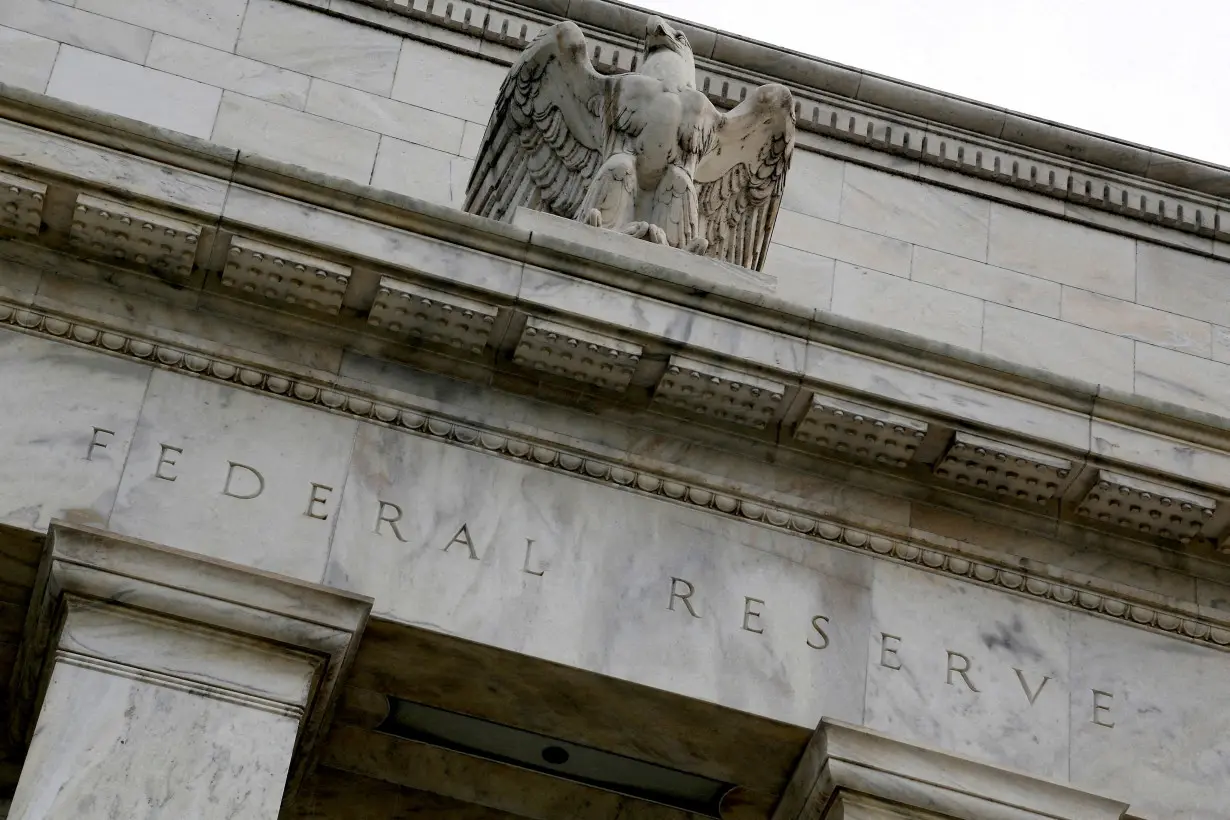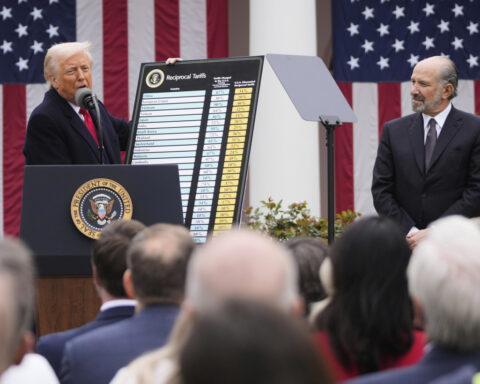By Davide Barbuscia
NEW YORK (Reuters) - A potential ending to the Federal Reserve’s balance sheet reduction measures this year bolsters the case for Treasuries to extend their 2023 rally, investors said, though many believe factors such as fiscal concerns could counterbalance gains.
Minutes from the Fed’s Dec. 12-13 policy meeting, released earlier this week, showed some officials are already discussing what it would take to end the shrinkage of the central bank’s cash and bond holdings.
That process, known as quantitative tightening, has seen the Fed’s balance sheet contract by nearly $100 billion per month as it allows Treasury and mortgage bonds it owns to mature and not be replaced. In doing so, it has reduced its balance sheet by just over $1 trillion, to $7.764 trillion on Dec. 27, complementing the aggressive rate increases it started in early 2022.
Some market participants said perceptions that an end to quantitative tightening was approaching could be another positive factor for bond markets in a year during which the Fed is expected to cut interest rates after a tightening cycle that saw them rise 525 basis points.
Yields on the benchmark 10-year Treasury, which move inversely to prices, have plunged over 100 basis points from 16-year highs hit in October on anticipation of rate cuts. That reversal spared bond markets for what could have been an unprecedented third straight year of declines.
Still, factors such as widening fiscal deficits - estimated to hit $20 trillion in the coming decade - and possibly lower demand for U.S. Treasuries from large foreign buyers are likely to keep bond prices from rising too far, market participants said.
"The slowing down of quantitative tightening is a positive, but I think the deficit situation is worse," said Vishal Khanduja, co-head of broad markets fixed income at Morgan Stanley Investment Management.
Meanwhile, timing the end of QT could be difficult, as it may not necessarily coincide with reductions in interest rates.
Analysts at Deutsche Bank said on Thursday the Fed may end QT as early as June if it starts cutting interest rates in response to a possible recession - an economic scenario the bank’s strategists forecast for this year. On the other hand, the Fed could extend QT into next year if the economy experiences a so-called soft landing, where inflation cools and growth remains resilient, the bank said.
A more conservative view came from so-called primary dealers. Wall Street’s biggest banks - surveyed before the Fed's Dec. 12-13 meeting - predicted policymakers would end balance sheet reduction in December 2024, later than they had previously forecast. The results of the survey were released on Thursday.
Matthew Miskin, co-chief investment strategist at John Hancock Investment Management, said the Fed's balance sheet measures are likely to continue running in parallel with changes in interest rates.
However, economic data such as Friday’s better-than-expected jobs report argue against balance sheet reduction in the near term, he added.
While an unwind of quantitative tightening could provide a measure of support for bonds, "quantitative policy is a piece of the puzzle, but frankly not as big of a piece as is often considered," he said.
(Reporting by Davide Barbuscia; Editing by Ira Iosebashvili and Jonathan Oatis)

 Trump has begun another trade war. Here's a timeline of how we got here
Trump has begun another trade war. Here's a timeline of how we got here
 Canada's leader laments lost friendship with US in town that sheltered stranded Americans after 9/11
Canada's leader laments lost friendship with US in town that sheltered stranded Americans after 9/11
 Chinese EV giant BYD's fourth-quarter profit leaps 73%
Chinese EV giant BYD's fourth-quarter profit leaps 73%
 You're an American in another land? Prepare to talk about the why and how of Trump 2.0
You're an American in another land? Prepare to talk about the why and how of Trump 2.0
 Chalk talk: Star power, top teams and No. 5 seeds headline the women's March Madness Sweet 16
Chalk talk: Star power, top teams and No. 5 seeds headline the women's March Madness Sweet 16
 Purdue returns to Sweet 16 with 76-62 win over McNeese in March Madness
Purdue returns to Sweet 16 with 76-62 win over McNeese in March Madness








